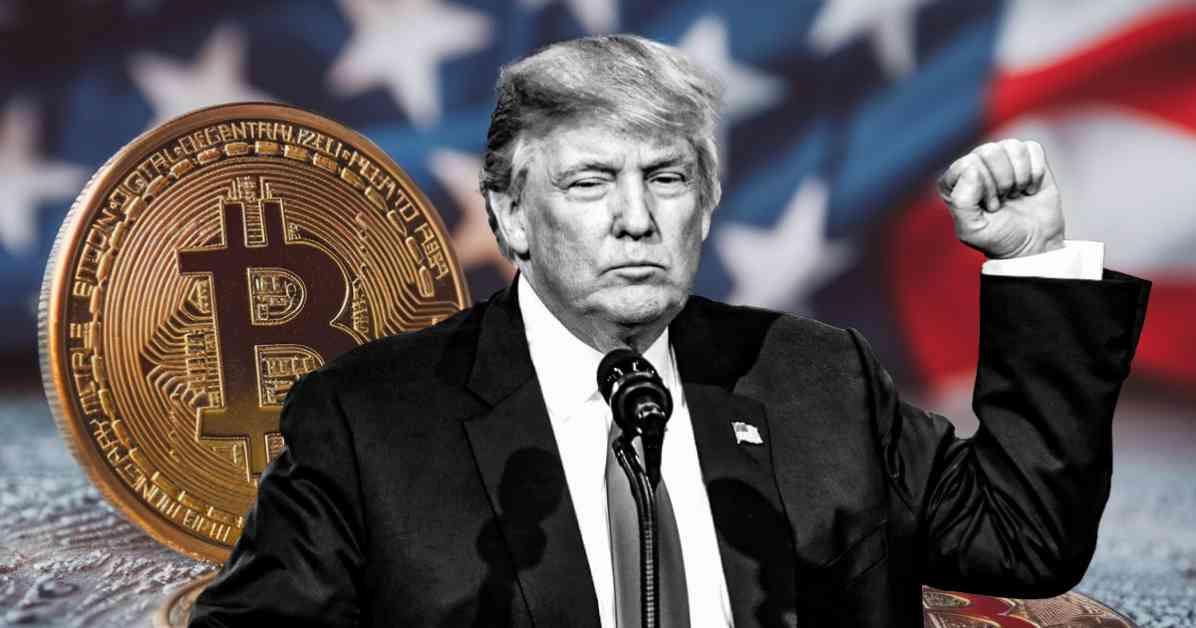Former President Donald Trump’s support for Bitcoin has helped him secure a 12-point lead over Vice President Kamala Harris in the 2024 presidential race, according to a recent poll conducted by Fairleigh Dickinson University (FDU). The poll, released on August 30th, revealed that Trump is significantly ahead among voters who own cryptocurrency or related assets, indicating that the crypto community could play a crucial role in swinging the upcoming election.
The FDU poll, conducted by Professor Dan Cassino, found that Trump leads by 12 points among likely voters who own crypto, with a 50% to 38% advantage over Harris. On the other hand, Harris leads by 12 points among voters who do not own crypto, with a 53% to 41% margin. This disparity highlights the impact of Trump’s engagement with the crypto community and his alignment with the underlying ideology of decentralization and distrust of traditional power structures.
According to Cassino, Trump’s outreach to the crypto community appears to be paying off, as his messaging resonates with the values and beliefs of crypto enthusiasts. The survey also revealed that 15% of registered US voters own crypto, NFTs, or similar digital assets, with this group predominantly consisting of men, younger voters, and racial minorities. Despite Republicans being slightly more likely than Democrats to own crypto, the difference in presidential support between crypto owners and non-owners is significant.
One of the key findings of the poll is that individuals across the political spectrum, including liberals, moderates, conservatives, progressives, and MAGA supporters, are equally likely to own digital assets. This suggests that crypto owners represent a diverse and potentially influential voting bloc that cannot be ignored in a closely contested election. Cassino emphasized the importance of appealing to crypto owners, stating that they are “too big a group to ignore” in the upcoming election.
In recent months, Trump has made several strategic moves to position himself as a pro-crypto candidate, in contrast to Vice President Harris. He became the first major presidential candidate to accept crypto donations in May and headlined a significant Bitcoin event in Nashville, Tennessee, where he pledged to make BTC a federal reserve asset. Additionally, Trump launched his fourth non-fungible token (NFT) project to further solidify his support within the crypto community.
The growing influence of the crypto community in politics has raised questions about the role of digital assets in shaping electoral outcomes. With Trump’s lead over Harris widening among crypto owners, it is evident that cryptocurrency could be a deciding factor in the 2024 presidential race. As both candidates continue to engage with the crypto community and make strategic moves to appeal to digital asset holders, the outcome of the election remains uncertain.
Impact of Trump’s Pro-Bitcoin Stance
Trump’s vocal support for Bitcoin and other cryptocurrencies has had a significant impact on his standing among voters who own digital assets. By embracing the principles of decentralization and financial sovereignty that are core to the crypto movement, Trump has managed to attract a loyal following within the crypto community. His efforts to position himself as a pro-crypto candidate have resonated with individuals who value transparency, innovation, and financial freedom.
The FDU poll’s findings underscore the importance of understanding the preferences and priorities of crypto owners in shaping political strategies. As the influence of digital assets continues to grow, politicians and policymakers must adapt to meet the needs of this emerging demographic. Trump’s success in leveraging his pro-Bitcoin stance to gain a competitive edge over his opponents highlights the changing dynamics of modern politics and the increasing relevance of cryptocurrency in electoral decision-making.
Challenges and Opportunities for Harris
Vice President Kamala Harris faces a formidable challenge in closing the gap with Trump among crypto owners, as the FDU poll indicates a significant lead for the former President in this demographic. Harris’s approach to digital assets and blockchain technology will be crucial in determining her ability to appeal to the crypto community and sway their support in the upcoming election. While she may have a lead among non-crypto owners, the growing influence of the crypto community cannot be overlooked.
To overcome this challenge, Harris will need to demonstrate a clear understanding of the potential benefits and risks associated with cryptocurrencies, as well as a commitment to fostering innovation and regulatory clarity in the digital asset space. By engaging with key stakeholders in the crypto community and articulating a coherent policy platform on blockchain technology and decentralized finance, Harris can position herself as a viable alternative to Trump for voters who prioritize digital assets in their decision-making.
The Future of Cryptocurrency in Politics
The FDU poll’s findings shed light on the evolving role of cryptocurrency in shaping political discourse and electoral outcomes. As digital assets become increasingly mainstream and widely adopted, politicians and candidates must adapt to the changing preferences and priorities of voters who own crypto. The influence of the crypto community in politics is likely to grow in the coming years, as more individuals recognize the potential of blockchain technology to revolutionize traditional systems and institutions.
In the 2024 presidential race, the support for Bitcoin and other cryptocurrencies could be a defining factor in determining the outcome of the election. Candidates who embrace the values of decentralization, transparency, and financial sovereignty are likely to resonate with voters who prioritize these principles. As Trump and Harris continue to engage with the crypto community and tailor their messaging to appeal to digital asset holders, the political landscape is set to undergo a significant transformation driven by the rise of cryptocurrency in mainstream politics.

















